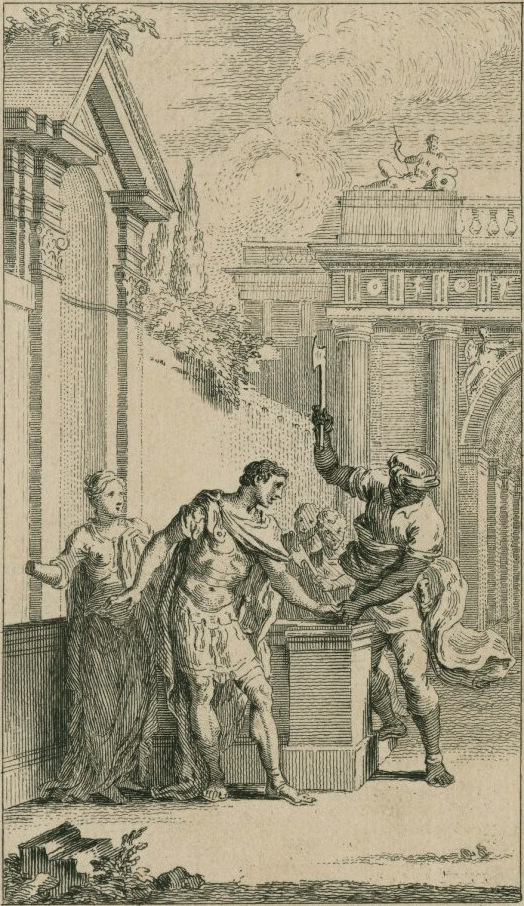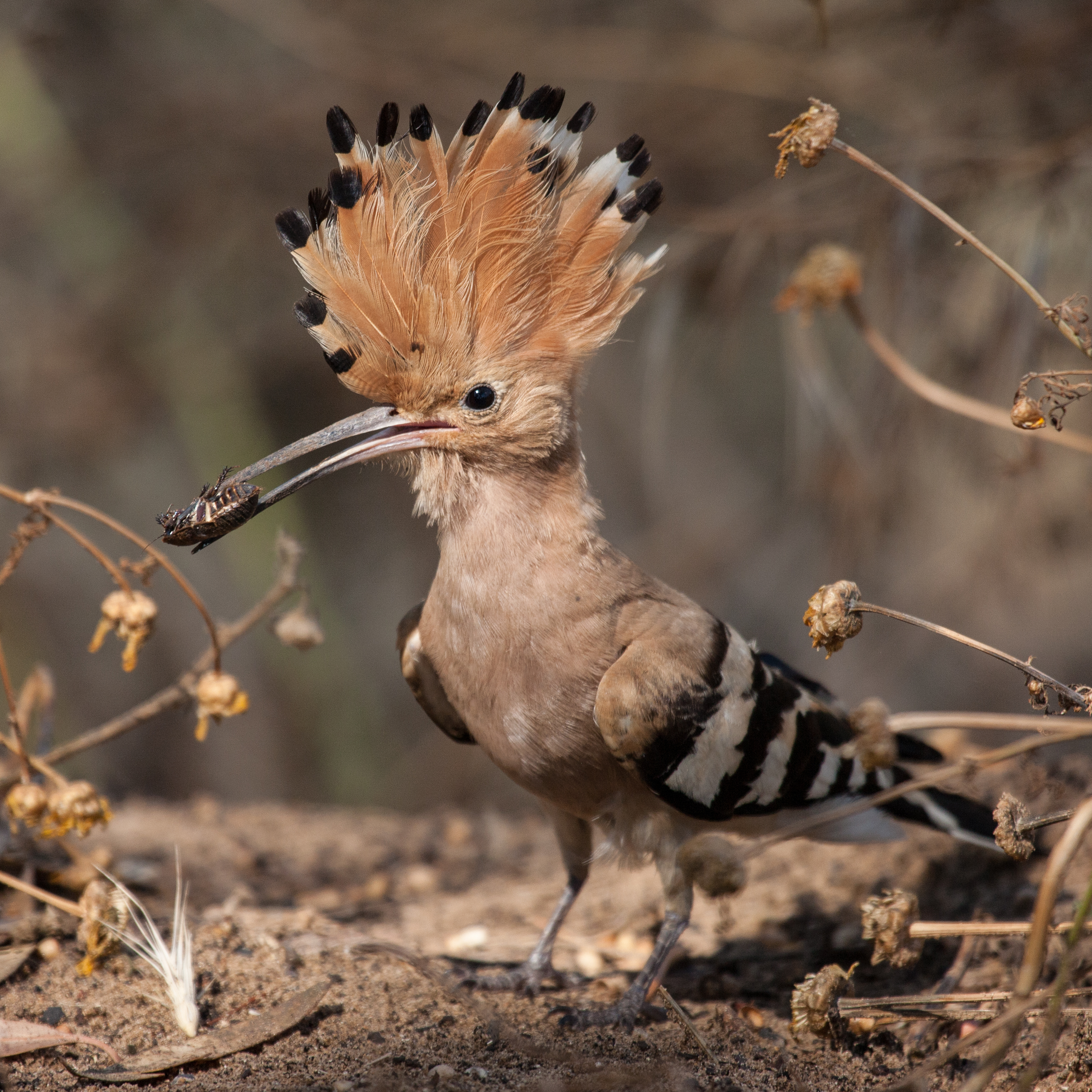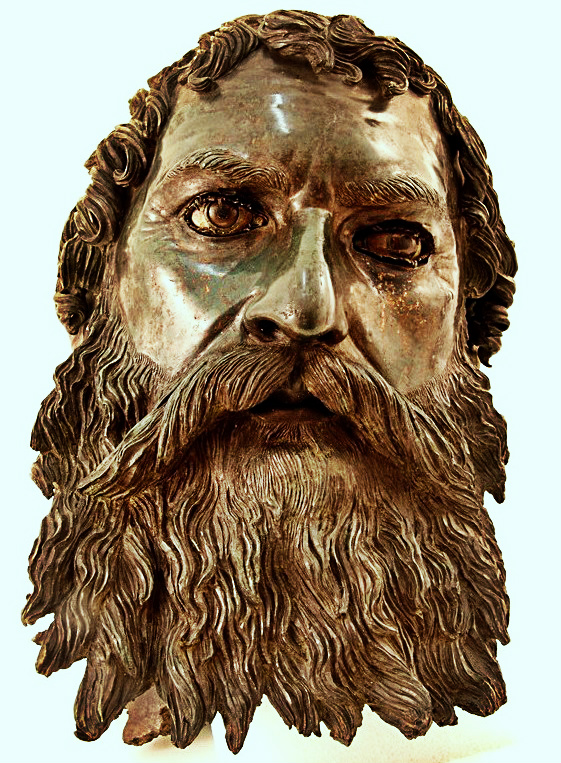|
Tereus
In Greek mythology, Tereus (; Ancient Greek: Τηρεύς) was a Thracian king,Thucydides: ''History of the Peloponnesian War'' 2:29 the son of Ares and the naiad Bistonis. He was the brother of Dryas. Tereus was the husband of the Athenian princess Procne and the father of Itys. Mythology When Tereus desired his wife's sister, Philomela, he came to Athens to his father-in-law Pandion to ask for his other daughter in marriage, stating that Procne had died. Pandion granted him the favour, and sent Philomela and guards along with her. But Tereus threw the guards into the sea, and finding Philomela on a mountain, forced himself upon her. He then cut her tongue out and held her captive so she could never tell anyone. After he returned to Thrace, Tereus gave Philomela to King Lynceus and told his wife that her sister had died. Philomela wove letters in a tapestry depicting Tereus's crime and sent it secretly to Procne. Lynceus' wife Lathusa who was a friend of Procne, at once ... [...More Info...] [...Related Items...] OR: [Wikipedia] [Google] [Baidu] |
Philomela
Philomela () or Philomel (; , ; ) is a minor figure in Greek mythology who is frequently invoked as a direct and figurative symbol in literary and artistic works in the Western canon. Family Philomela was the younger of two daughters of Pandion I, King of Athens, and the naiad Zeuxippe. Her sister, Procne, was the wife of King Tereus of Thrace. Philomela's other siblings were Erechtheus, Butes and possibly Teuthras. Mythology While the myth has several variations, the general depiction is that Philomela, after being raped and mutilated by her sister's husband, Tereus, obtains her revenge and is transformed into a nightingale (''Luscinia megarhynchos''), a bird renowned for its song. Because of the violence associated with the myth, the song of the nightingale is often depicted or interpreted as a sorrowful lament. In nature, the female nightingale is mute, and only the male of the species sings. Ovid and other writers have made the association that the etymology o ... [...More Info...] [...Related Items...] OR: [Wikipedia] [Google] [Baidu] |
Tereus (play)
''Tereus'' (, ''Tēreus'') is a lost Greek play by the Athenian poet Sophocles. Although fragments have long been known, the discovery of a synopsis among the Oxyrhynchus Papyri has allowed an attempt at a reconstruction. Although the date that the play was first produced is not known, it is known that it was produced before 414 BCE, because the Greek comedic playwright Aristophanes referenced ''Tereus'' in his play '' The Birds'', which was first performed in 414. Thomas B. L. Webster dates the play to near but before 431 BCE, based on circumstantial evidence from a comment Thucydides made in 431 about the need to distinguish between Tereus and the King of Thrace, Teres, which Webster believes was made necessary by the popularity of Sophocles's play around this time causing confusion between the two names. Based on references in ''The Birds'' it is also known that another Greek playwright, Philocles, had also written a play on the subject of Tereus, and there is evidence both ... [...More Info...] [...Related Items...] OR: [Wikipedia] [Google] [Baidu] |
Procne
Procne (; , ''Próknē'' ) or Progne is a minor figure in Greek mythology. She was an Athens, Athenian princess as the elder daughter of a king of Athens named Pandion I, Pandion. Procne was married to the king of Thrace, Tereus, who instead lusted after her sister Philomela. Tereus forced himself on Philomela and locked her away. When Procne discovered her sister and her gruesome fate, she took revenge against her husband by murdering their only child, a young boy named Itys. Procne's story serves as an origin myth for the nightingale. Family Procne's mother was the naiad Zeuxippe and her siblings were Philomela, Erechtheus, Butes and possibly Teuthras (mythology), Teuthras. She married King Tereus of Thrace and became the mother of Itys (or Itylus). Mythology Tereus and Philomela Procne was given to wife to Tereus, a king of Thrace, in some versions because he assisted king Pandion in a war against the Laconians, so Pandion gave him a daughter in marriage.Ovid, ''Meta ... [...More Info...] [...Related Items...] OR: [Wikipedia] [Google] [Baidu] |
Itys
In Greek mythology, Itys () is a minor mythological character, the son of Tereus, a king of Thrace, by his Athenian wife Procne. Itys was murdered by his own mother and served to be consumed during dinner by his father, as part of a revenge plan against Tereus for assaulting and raping Philomela, Procne's sister. His immediate family were all transformed into birds afterwards, and in some versions Itys too joins them in the avian kingdom. Itys' story survives in several accounts, the most extensive and famous among them being Ovid's ''Metamorphoses''. His myth had been known since at least the sixth century BC. Family Itys was the son of Procne, a princess of Athens, and Tereus, a Thracian king, thus nephew to Philomela. Through his father he was a grandson of the god of war Ares. Mythology Itys was born and raised in Thrace. At some point his father Tereus raped Itys' maternal aunt Philomela while escorting her to Thrace on her visit to her sister Procne. Tereus cut P ... [...More Info...] [...Related Items...] OR: [Wikipedia] [Google] [Baidu] |
Titus Andronicus
''The Lamentable Tragedy of Titus Andronicus'', often shortened to ''Titus Andronicus'', is a Shakespearean tragedy, tragedy by William Shakespeare, believed to have been written between 1588 and 1593. It is thought to be Shakespeare's first tragedy and is often seen as his attempt to emulate the violent and bloody revenge plays of his contemporaries, which were extremely popular with audiences throughout the 16th century. Titus Andronicus (character), Titus, a Legatus, general in the Roman army, presents Tamora, Queen of the Goths, as a slave to the new Roman emperor, Saturninus. Saturninus takes her as his wife. From this position, Tamora vows revenge against Titus for killing her son. Titus and his family retaliate, leading to a cycle of violence. ''Titus Andronicus'' was initially very popular, but by the later 17th century it was not well esteemed. The Victorian era disapproved of it, largely because of its graphic violence. Its reputation began to improve around the mid ... [...More Info...] [...Related Items...] OR: [Wikipedia] [Google] [Baidu] |
Hoopoe
Hoopoes () are colourful birds found across Africa, Asia, and Europe, notable for their distinctive "Crest (feathers), crown" of feathers which can be raised or lowered at will. Two living and one extinct species are recognized, though for many years both extant species were lumped as a single species—''Upupa epops''. In fact, some taxonomists still consider the species to be Biological_specificity#Conspecific, conspecific. Some authorities also keep the African and Eurasian hoopoe together but split the Madagascar hoopoe. The Eurasian hoopoe is common in its range and has a large population, so it is evaluated as Least Concern on the IUCN Red List of Threatened Species. However, their numbers are declining in Western Europe. Conversely, the hoopoe has been increasing in numbers at the tip of the South Sinai, Sharm el-Sheikh. There are dozens of nesting pairs that remain resident all year round. Taxonomy The genus ''Upupa'' was introduced in 1758 by the Swedish naturalist Carl ... [...More Info...] [...Related Items...] OR: [Wikipedia] [Google] [Baidu] |
Philocles
Philocles (), was an Athens, Athenian tragic poet during the 5th century BC. Through his mother, Philopatho (), he had three famous uncles: Aeschylus, the famous poet, Cynaegirus, hero of the battle of Marathon, and Ameinias of Athens, Ameinias, hero of the battle of Salamis. The ''Suda'' claims that Philocles was the father of the tragic playwright Morsimus, who was in turn the father of the tragedian Astydamas the Elder and was in his turn the father of the tragedian Astydamas, Astydamas the Younger.Suda φ 378 Works According to the ''Suda'', Philocles wrote 100 tragedies. Philocles is best known for winning first prize in the competition against Sophocles' ''Oedipus Rex''. Philocles also wrote a play on the subject of Tereus, which was parodied in Aristophanes' ''The Birds (play), The Birds'' along with Sophocles' Tereus (Sophocles), treatment of the same subject. A scholiast has noted that Philocles' ''Tereus'' was part of his ''Pandion I, Pandionis'' tetralogy. An extan ... [...More Info...] [...Related Items...] OR: [Wikipedia] [Google] [Baidu] |
Dryas Of Calydon
In Greek mythology, Dryas (Ancient Greek: Δρύας, gen. Δρύαντος, from δρῦς "oak") was a lord from Calydon who was also one of the famous Calydonian hunters.Apollodorus1.8.2/ref>Hyginus. ''Fabulae''173/ref> Family Dryas was a son of Ares and a brother of Tereus. But according to Hyginus' ''Fabulae'', he was also called the son of Iapetus ("the piercer"), probably an epithet of Ares. Mythology In the account of the ''Fabulae'' by Hyginus, Tereus, having heard the prophecy that his son was to be killed by the hand of a relative and falsely believing that it was Dryas whom the oracle indicated, murdered the innocent man (whereas the son was actually murdered by Procne).Hyginus. ''Fabulae''45/ref>"Tereus, son of Mars res a Thracian . . . thinking that his brother Dryas was plotting his son's death, he killed the innocent man." Notes References * Apollodorus, ''The Library'' with an English Translation by Sir James George Frazer, F.B.A., F.R.S. in 2 Volum ... [...More Info...] [...Related Items...] OR: [Wikipedia] [Google] [Baidu] |
Sophocles
Sophocles ( 497/496 – winter 406/405 BC)Sommerstein (2002), p. 41. was an ancient Greek tragedian known as one of three from whom at least two plays have survived in full. His first plays were written later than, or contemporary with, those of Aeschylus and earlier than, or contemporary with, those of Euripides. Sophocles wrote more than 120 plays, but only seven have survived in a complete form: '' Ajax'', '' Antigone'', '' Women of Trachis'', '' Oedipus Rex'', '' Electra'', '' Philoctetes'', and '' Oedipus at Colonus''. For almost fifty years, Sophocles was the most celebrated playwright in the dramatic competitions of the city-state of Athens, which took place during the religious festivals of the Lenaea and the Dionysia. He competed in thirty competitions, won twenty-four, and was never judged lower than second place. Aeschylus won thirteen competitions and was sometimes defeated by Sophocles; Euripides won four.. The most famous tragedies of Sophocles feature Oedip ... [...More Info...] [...Related Items...] OR: [Wikipedia] [Google] [Baidu] |
Thracians
The Thracians (; ; ) were an Indo-European languages, Indo-European speaking people who inhabited large parts of Southeast Europe in ancient history.. "The Thracians were an Indo-European people who occupied the area that today is shared between Thrace, north-eastern Greece, Romania, and north-western Turkey. They shared the same language and culture. There may have been as many as a million Thracians, divided among up to 40 tribes." Thracians resided mainly in Southeast Europe in Present (time), modern-day Bulgaria, Romania, North Macedonia, northern Greece and European Turkey, but also in north-western Anatolia, Anatolia (Asia Minor) in Turkey. The exact origin of the Thracians is uncertain, but it is believed that Thracians like other Indo-European speaking groups in Europe descended from a mixture of Proto-Indo-Europeans and Early European Farmers. Around the 5th millennium BC, the inhabitants of the eastern region of the Balkans became organized in different groups of Indi ... [...More Info...] [...Related Items...] OR: [Wikipedia] [Google] [Baidu] |
Nightingale
The common nightingale, rufous nightingale or simply nightingale (''Luscinia megarhynchos''), is a small passerine bird which is best known for its powerful and beautiful song. It was formerly classed as a member of the thrush family Turdidae, but is now more generally considered to be an Old World flycatcher, Muscicapidae. It belongs to a group of more terrestrial species, often called chats. Etymology "Nightingale" is derived from "night" and the Old English ''galan'', "to sing". The genus name ''Luscinia'' is Latin for "nightingale" and ''megarhynchos'' is from Ancient Greek ''megas'', "great" and ''rhunkhos'' "bill". Subspecies *Western nightingale (''L. m. megarhynchos'') – western Europe, North Africa and Asia Minor, wintering in tropical Africa *Caucasian nightingale (''L. m. africana'') – the Caucasus and eastern Turkey to southwestern Iran and Iraq, wintering in East Africa *Eastern nightingale (''L. m. golzii'') – the Aral Sea to Mongolia, wintering in co ... [...More Info...] [...Related Items...] OR: [Wikipedia] [Google] [Baidu] |
Polytechnus
In Greek mythology, Polytechnus () is a carpenter from Colophon, in an Anatolian variant of the story of Tereus. He is the husband of Aëdon and brother-in-law of Chelidon. Mythology Polytechnus was a carpenter, and at some point he was given a gift axe by Hephaestus himself. He was married to Aëdon, the daughter of Pandareus of Ephesus. The couple had a son named Itys, and were happy until they boasted of being a more happy couple than even Zeus and Hera. The divine royal couple, slighted, sent them the goddess Eris to bring strife and discord in their home. At the time, Polytechnus was completing a standing board for a chariot and Aëdon a tapestry, so they made a wager that whoever finished first would need to find the other a slave. With Hera's help, Aëdon was victorious. Polytechnus was bitter about his wife's victory, so he went to Pandareus, and lied about Aëdon sending him to fetch her sister, Chelidon. Pandareus without suspecting a thing let Polytechnus take her ... [...More Info...] [...Related Items...] OR: [Wikipedia] [Google] [Baidu] |







